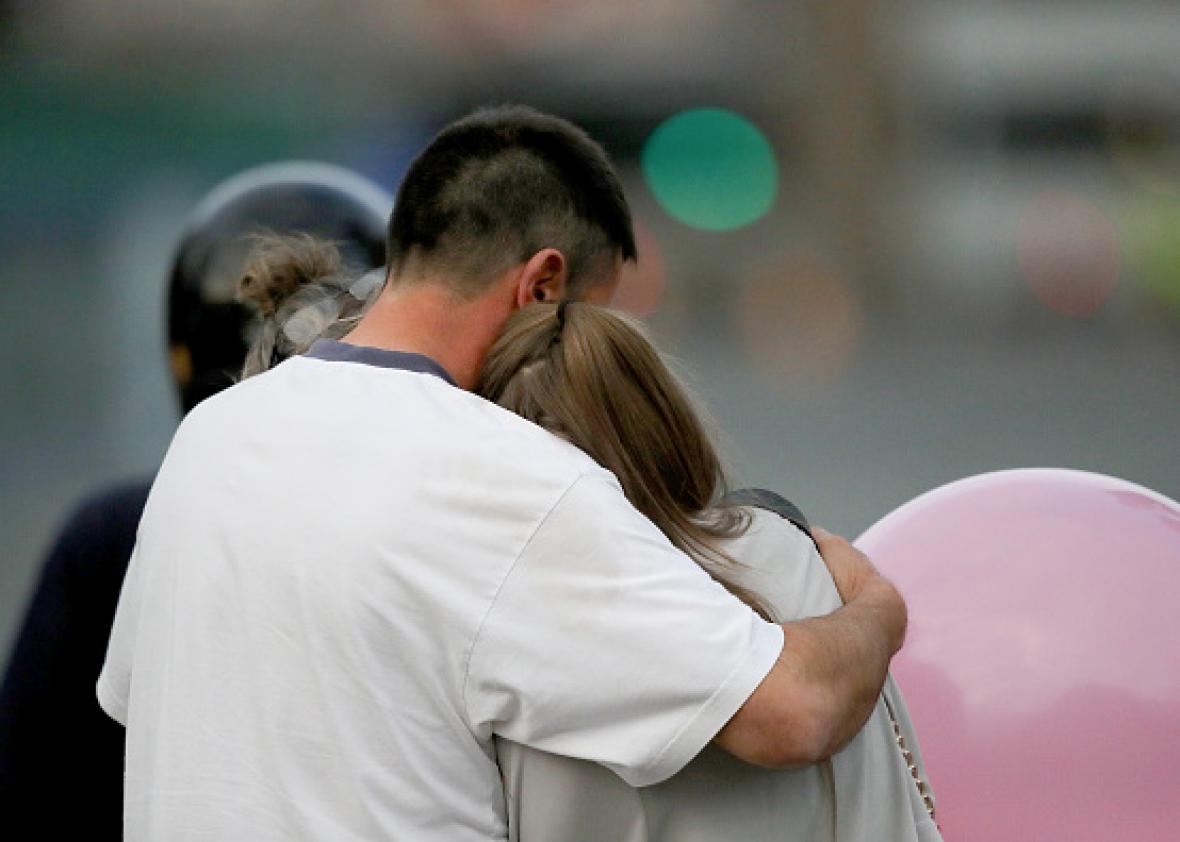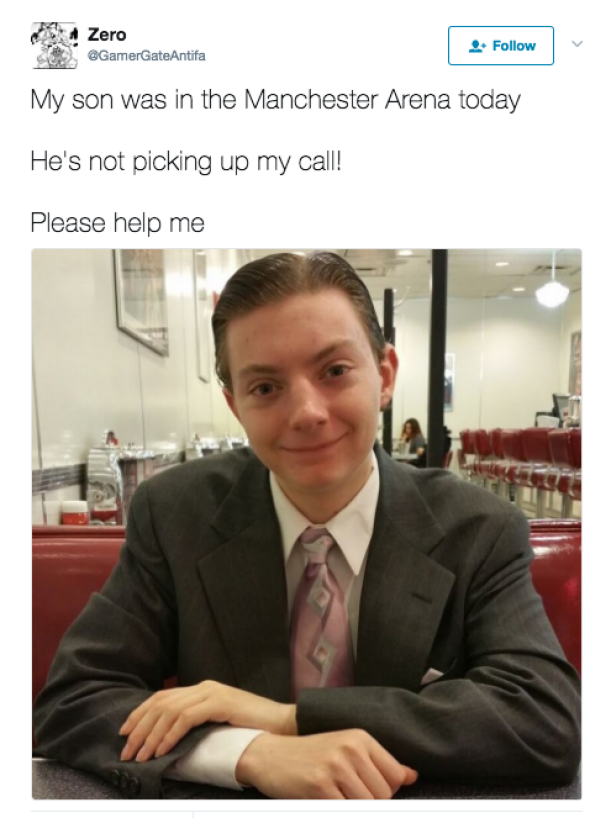After the Bombing in Manchester, Heartless People Tweeted Fake Stories About Missing Loved Ones

Christopher Furlong/Getty Images
In the chaos following Monday night’s deadly bombing at an Ariana Grande concert in Manchester, England, friends and family of concertgoers took to social media to seek out information about their loved ones. But—out of tasteless humor, particularly exploitative attempt to gain retweets, likes, and followers on social media, or some combination thereof—some Twitter users sent out pleas of help for fictional missing friends and relatives.
Now I'm seeing all these fake "My Brother/Sister/Child went to the show in Manchester and is missing" tweets.
— Danny Xanax 🎮 (@DannyXanax) May 23, 2017
Just sickened by this.
I'm blocking this asshole for lying about his brother being missing during the attack in Manchester. Idk why somebody would lie about this 😠 pic.twitter.com/yd2RItJq5h
— Ryan (XB1) (@TheRedSpartan99) May 23, 2017
In some of these cases, the photos used in the tweets could be traced back to images elsewhere online, as with this one that in Google images leads to a search for “cute white boys.”
Please help @solzz97 find his brother he is currently missing After the concert #Manchester #RoomForManchester 🙏 pic.twitter.com/FAOEsY3n6Q
— Sam Shawcross® (@SamJJShawcross) May 22, 2017
In other cases, the real people depicted in the photos weighed in to say they were safe and, in many cases, nowhere near Manchester. One of the photos spread around was that of a YouTube personality who runs a channel called Report of the Week.

@actlikeyouluv Sorry to break everyone's hearts, but I'm pretty sure I'm 100% accounted for.
— TheReportOfTheWeek (@TROTWOfficial) May 23, 2017

These tweets ended up mixed in with photos of people who were actually missing, creating an underlying layer of skepticism to efforts to spread images of the missing.
Some other Twitter users attempted to sort out the fakes. Note: I have not been able to independently verify which of these are real.
#Manchester please spread the word to find all these people! my thoughts are with them💜 pic.twitter.com/GPQvUbA1Vr
— caroline💞 (@actlikeyouluv) May 23, 2017
BuzzFeed News also reported that the widely spread report that a Holiday Inn hotel near the concert’s location had taken in 50 or more unaccompanied children was also false.
Whatever the motives behind the originators of these falsehoods, most of those who go on to retweet them appear to do so out of a genuine desire to help. But fake missing-persons tweets have made it to at least a small degree more difficult for people trying to create a supportive online community for worried people in need of answers.
two more Manchester Missing person reports I found
— Nick Monroe (@nickmon1112) May 23, 2017
(this is taking longer because I need to try and sort out fake reports now) pic.twitter.com/a4DXRPEqTa
It is an inevitability that out-of-control rumors and pointless falsehoods will ricochet around the Twittersphere during times of crisis. But as a 2015 survey from the American Press Institute found, Twitter itself can be surprisingly self-corrective. In the survey, respondents said that in 43 percent of the times when users found out a tweet had been false, they also saw a follow-up tweet from its original source debunking the original tweet. And in more than half of the instances, they’d learned the truth from another person on Twitter. Twitter may be a place for lies that seem to exist just to cloud the truth, but it is also a place for people who desperately try to sort things out.
This instance in Manchester is yet another reminder that social media can be a great source of comfort and information in a time of crisis, but also a breeding ground for lies and confusion. Sometimes, though, social media helps.
This is the community working together. What a great example of how social media is awesome. pic.twitter.com/x1tArJLXY6
— Renzo Soprano (@Renzo_Soprano) May 23, 2017
Future Tense is a partnership of Slate, New America, and Arizona State University.
